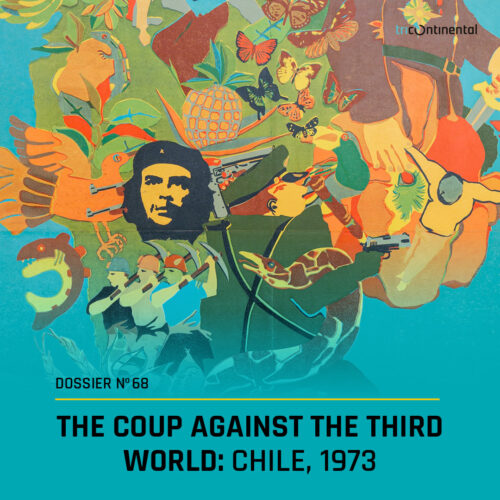In anticipation of the fiftieth anniversary of the 11 September coup against Chile’s Popular Unity government, Tricontinental: Institute for Social Research and the Instituto de Ciencias Alejandro Lipschutz Centro de Pensamiento e Investigación Social y Política release a new dossier analysing the coup and its effects on the Third World and non-aligned countries.
On 11 September 1973, reactionary sections of the Chilean army, led by General Augusto Pinochet, left the barracks and overthrew the democratically elected government of President Salvador Allende and the Popular Unity coalition. The military and other security forces began an assault on the organised sectors of society, making mass arrests and setting in place a regime of repression. The socialist programmes and policies of the Popular Unity government were dismantled. Chile entered a phase of twilight, a laboratory for neoliberalism.
Why did the soldiers leave the barracks on the morning of 11 September? Arguments made by General Pinochet and those around him about law and order have no basis in fact. The truth is that the coup – conceived, prepared, and executed by the US, as numerous declassified documents show – did not take place merely on that day in 1973.
It was the Allende government’s policies to nationalise copper that spurred the coup. But the policy to nationalise copper – which was approved in Congress in July 1971 – was part of a broader conversation in the Third World to create a New International Economic Order that would restructure the neocolonial international economic system along democratic lines and give weight to the ideas and peoples of the Third World.
The coup against Allende’s government took place not only against its own policy of the nationalisation of copper, but also because Allende had offered leadership and an example to other developing countries that sought to implement the NIEO principles. In that sense, the US-driven coup against Chile was precisely a coup against the Third World.
• See: Tricontinental: Institute for Social Research’s dossier no. 68, The Coup Against the Third World: Chile, 1973.











